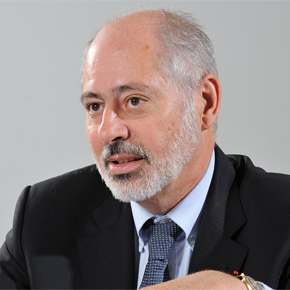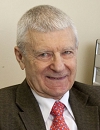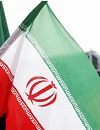 |
||
|
The Baghdad Chapter in the Iran Saga RIA Novosti, Vladimir Yevseyev, PUBLISHED May 31, 2012 Meetings of the P5+1 (the five permanent members of the UN Security Council and Germany) on the Iranian nuclear issue are becoming a monthly occurrence. The next meeting will be held in Moscow in mid-June. The last two meetings – in Istanbul in April and in Baghdad last week in May – did not produce any results. The reason for this can be found in the changes in the political situation in Iran that occurred in late March. A political win for the spiritual leader The first round of elections to the Majlis, Iran’s parliament, was held in March. Despite the opposition’s calls to boycott the elections, turnout was 64%, among the highest levels in the nation’s history. This can be viewed as a vote of confidence in the leadership of the Islamic Republic. The conservatives – supporters of Iran’s spiritual leader Ayatollah Ali Khamenei – won a convincing victory, taking over 60 percent of the vote. The neo-conservatives that backed President Mahmoud Ahmadinejad received just 4 percent of seats in the new parliament. During the second round of voting in early May, the share of Ahmadinejad’s supporters increased to 6 percent. Under certain circumstances, they can win the support of independent candidates (who received 30 percent of seats in parliament) but this won’t change the situation in principle. The new parliament is likely to block Ahmadinejad’s attempts to expand the powers of the executive branch and will try to exert control over the government. In effect, this spells the end of a form of power sharing in the country. Now Iran’s spiritual leader will have control of all the main levers of power. Nuclear program moves forward The victory in the parliamentary elections allowed Khamenei to take the initiative in handling the nuclear crisis. At the meeting in Istanbul, Tehran agreed to limit uranium enrichment to a maximum of 20 percent. Iran was able to make this proposal because Khamenei has consolidated his power and Iran has made considerable progress in implementing its nuclear program. First, Iran has put into operation a new uranium-enrichment facility in Fordo. Its location inside a mountain protects it against attacks by conventional weapons. Second, Iran has stocked enough 20 percent -enriched uranium to supply its Tehran Research Reactor with nuclear fuel and make two fuel rods for it. Next Iran will start producing uranium concentrate at the Gchine deposit near Bandar Abbas in Hormozgan Province. Finally, the nuclear power plant in Bushehr has reached 90 percent of its rated capacity, which is a major success of the Iranian nuclear program. Why the Baghdad talks failed IAEA Director-General Yukiya Amano visited Tehran two days before the start of the talks in Baghdad on May 23. He tried to negotiate unrestricted inspections of Iranian nuclear facilities. He was primarily interested in gaining access for IAEA inspectors to a military facility in Parchin where, according to Western sources, Iran allegedly tested a neutron detonator – the device that triggers a nuclear explosion. However, this issue was not resolved, which complicated the subsequent talks between Iran and the P5+1. However, this was not the only reason for the lack of real progress at the talks in Baghdad. The P5+1 and Iran differ on a number of other issues. Thus, Iran was again offered a chance to exchange its stockpiled low-enriched uranium (LEU) for nuclear fuel for the Tehran Research Reactor, but Tehran believes this proposal is pointless since it can already produce such fuel on its own. The sides also had different positions on the sharing of information on existing fissile materials and the construction of new nuclear facilities. Having stockpiled six tons of LEU at 3.5 percent enrichment and 145 kg of uranium at about 20 percent enrichment, Iran is capable of producing (after additional enrichment) seven nuclear charges. This is exactly why the West believes that Iran must start implementing the 1997 Additional Protocol and the modified Code 3.1 to Iran’s Safeguards Agreement with the IAEA. These documents require that the agency be informed of the construction of nuclear facilities immediately and “no later than 180 days before the facility is scheduled to receive nuclear material for the first time.” This is an essential requirement because the construction of secret nuclear installations usually takes several years. In late 2003, Iran agreed to abide by the requirements set in these documents. However, in a bid to curb mounting pressure from the West, Iran suspended the 1997 Additional Protocol in February 2006 and unilaterally withdrew from the afore-mentioned modified code on IAEA safeguards in March 2007. Eventually, the West demanded that Iran suspend all additional enrichment of uranium to 20 percent as well as strict IAEA monitoring of its nuclear facilities. Tehran believed this infringed on its right to use nuclear energy for peaceful purposes. Search for new incentives One more round of talks will be held in Moscow on June 18-19 in an attempt to find common ground. There is no reason to dramatize the situation. EU High Representative for Foreign Affairs and Security Policy Catherine Ashton said that Iran and P5+1 still seek to make progress. Tehran voiced its readiness to limit enrichment activities. In light of the failure of the sides to forge an agreement in Baghdad, much will depend now on the success of inspectors in Iran and the EU’s ability to provide attractive financial and economic incentives to Iran. If the sides make progress in these areas, they will forestall the escalation of the Iranian nuclear crisis, giving hope that a peaceful settlement is possible. Otherwise, the risk of a military scenario will increase substantially, and any use of force could ignite a regional war with unpredictable consequences. Other news: Bulgaria registered project company for Kozloduy-7 It is fully belonged now to the Kozloduy NPP. Bushehr to Begin Operations in 2012 - Rosatom We want to put it into commercial production at the end of this year. Japan Starts Work to Shut Down Last Reactor The company will stop power production at the Tomari nuclear power plant's third reactor. |
Hero of the day 
Jacques Repussard: knowledge, independence, proximity They told me: "Mr Repussard, we're not used to responding to anti-nuclear organisations". To which I replied: "We will not reveal any state or trade secrets, but we will not leave them without any answer". INTERVIEW
Georgy Toshinsky OPINION
Dmitry Kosyrev Last news:
|
Licence Р В Р’ВВР В Р’В» №ФС77-30792. ATOMINFO™ trademark.

